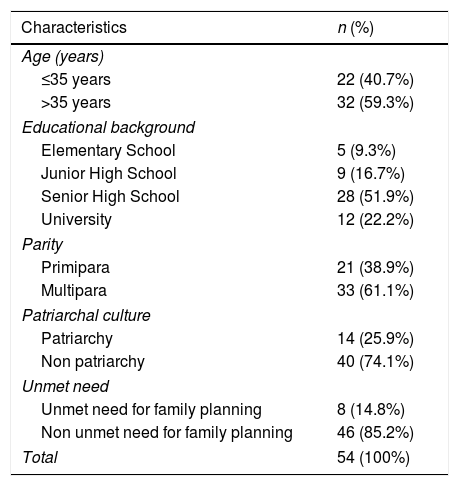Unmet need for KB (family planning) is a multidimensional problem due to the influences of various factors such as demographic characteristics, socio-economic, attitudes and access to services. Therefore, this research was conducted with the aim of knowing the relationship between parity and patriarchal culture with unmet need for family planning in the Gadungan Village in order to reduce the percentage of unmet need based on the causes.
MethodThis study employed a cross-sectional survey study which was carried out from August 2018 to February 2019. The researcher also utilized simple random sampling to select the sample. The number of samples taken were 54 eligible women in Desa Gadungan. Data collection was conducted using a questionnaire filled in by respondents. Further, the data analysis was done by administering Chi-square test.
FindingsThis study finds out that there is a significant correlation between parity and patriarchal culture with the unmet need for family planning in eligible women in Gadungan Village, Selemadeg Timur Tabanan District, Bali with p-values of 0.03 and 0.02. There needs to be counseling about unmet need for family planning and its impact so that public knowledge improves of unmet need.
Artículo
Comprando el artículo el PDF del mismo podrá ser descargado
Precio 19,34 €
Comprar ahora









